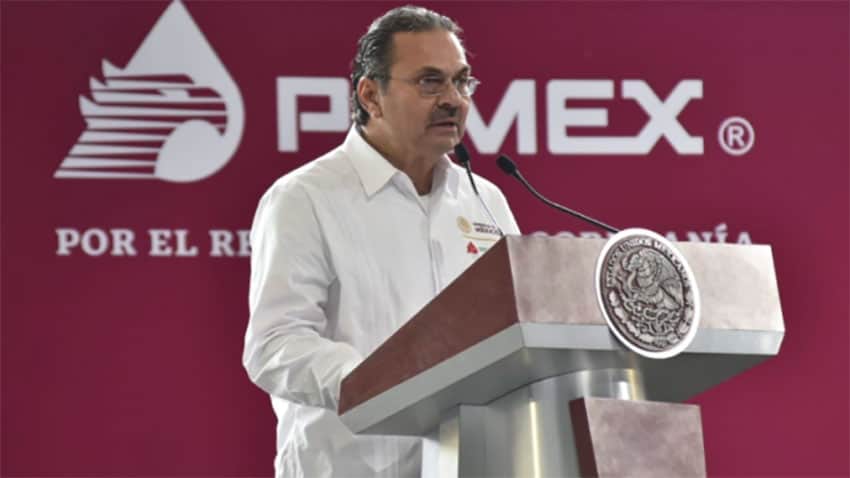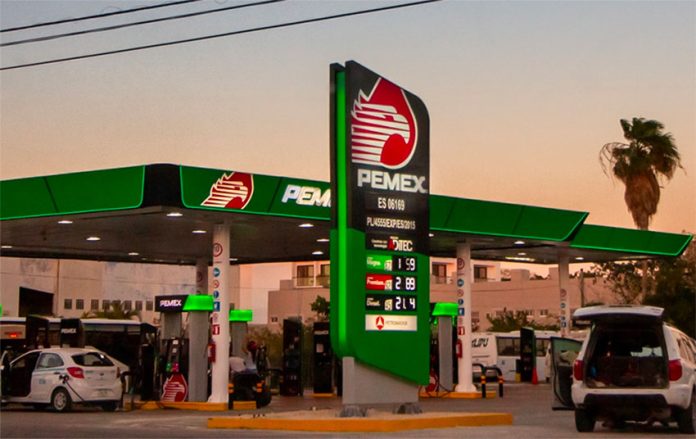Pemex on Friday reported a loss of almost half a trillion pesos in 2020 as the state oil company faced what CEO Octavio Romero described as the “worst crisis” in its history.
The company reported a loss of 480.96 billion pesos (US $23 billion), a 38.2% increase compared to its 2019 loss.
Industrial transformation losses contributed to 45.6% of the overall loss and exploration and production losses contributed 41.9%, the company’s annual report said.
Presenting the report, Romero said that Pemex faced the “worst crisis in its history” in 2020 as demand for oil slumped due to the coronavirus pandemic and associated economic restrictions.
“The unprecedented combination of low prices for crude and petroleum products” and a “steep fall in fuel consumption eroded the cash flows of all oil companies,” he said.

Pemex’s total revenues fell 32% last year to US $42.47 billion. However, the oil company recovered in the second half of 2020, recording net profits in the third and fourth quarters.
The profit in the October-December quarter was 124.21 billion pesos (US $5.9 billion), a vast improvement compared to the fourth quarter of 2019 when the company lost 171.54 billion pesos (US $8.2 billion).
Romero highlighted that it was the first time in more than four years that Pemex recorded net profits in two consecutive quarters.
He said that oil extraction costs declined 20.7% in 2020 to US $11.15 per barrel compared to $14.06 in 2019. Transparency practices and the eradication of corruption generated savings of approximately 40.54 billion pesos (US $1.9 billion), Romero said.
The CEO said that another “fundamental achievement” was that average petroleum production in 2020 increased by 4,000 barrels per day (bpd) to 1.705 million. He said the production increase ends a 15-year period of year-over-year declines.
Romero said that average daily output would have been 1.73 million bpd had Pemex not agreed to cut production last May and June as part of an agreement with the 23 oil-producing OPEC+ nations to reduce supply in order to stabilize prices amid the coronavirus-induced downturn in demand.
He said the production increase can partially be attributed to the incorporation of oil from new fields whose development began in the first half of 2019.
“In record time for the industry, less than two years, Pemex managed to incorporate production from these new developments,” Romero said.
Despite its huge loss, Pemex transferred 598.33 billion pesos (US $28.6 billion) to the federal government last year in “direct and indirect contributions,” he said. In the first two years of the current government, Pemex transferred 1.47 trillion pesos (US $70.3 million) to the government for the social and economic development of the country, Romero said.
The transfers were made despite Pemex being heavily indebted and requiring significant government support to stay afloat. Just last week, President López Obrador announced a new agreement to reduce Pemex’s tax burden and the government has injected large amounts of cash into the firm.
“The Federal Electricity Commission and Pemex will continue to be supported with public financing … In the case of Pemex, another agreement will come into force, a decree to reduce its tax payments to the Finance Ministry,” he said February 18.
Source: Sin Embargo (sp), El Financiero (sp)
